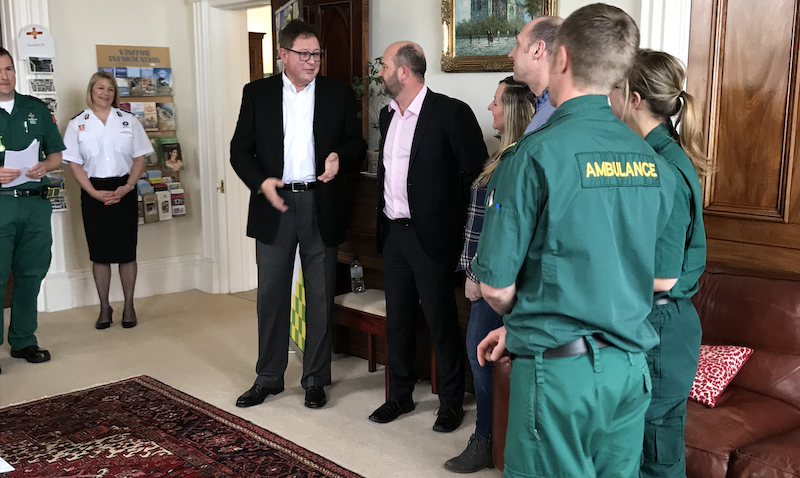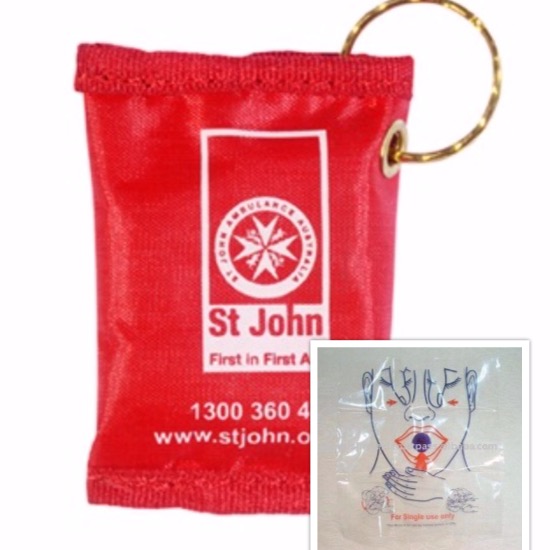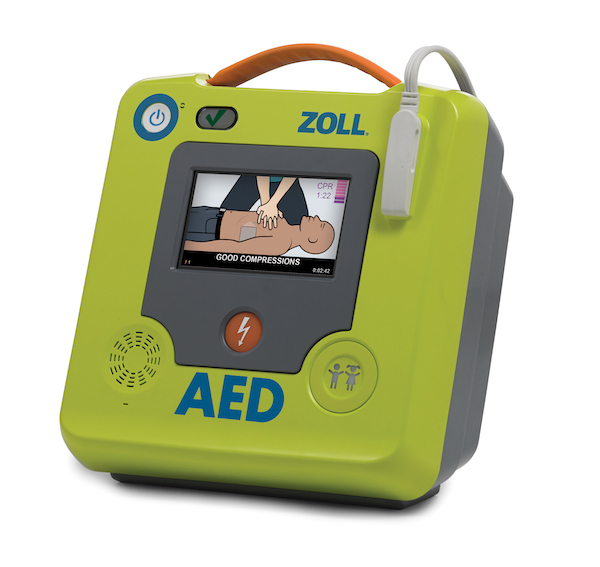

A financial services professional was given life-saving first aid by two members of the public when he suffered a cardiac arrest last month.
Rick Denton, 57, was given the opportunity to meet with the couple who saved his life along with St John paramedics and trainers who were quick on the scene when he experienced the life threatening attack on 4 February.
Mr Denton's family and friends also had the opportunity to thank Lynette Symons and Paul Hancock who had been sitting behind Mr Denton when they heard a crash and turned around to see the man slumped on the floor showing signs of a cardiac arrest.
"We were sitting at the table by the steps as usual, at first we just thought someone had dropped a plate when we heard the crash but we looked and saw Rick had collapsed," said Ms Symons.
Both had completed St John's training and said they went into auto pilot when it came to administering the treatment Mr Denton needed to regain consciousness. Luckily Ms Symons still had the keyring face mask which had been handed to her some year before by St John which is to be used when giving mouth-to-mouth resuscitation.

Pictured: An example of the keyring plastic face shield Ms Symons was able to use to give Mr Denton rescue breaths.
"The first thing was we noticed he had slumped down by the heater so we made sure he was away from that, that's one of the things we were taught to look out for in terms of other dangers, then he fell down into the recovery position so that was good," she said.
While Mr Hancock ensured Mr Denton's airways were clear Ms Symons began giving rescue breaths and moments later St John Training Manager Steve Ford arrived and began performing CPR on the man, the coils is also the base for St John training.
Les Cotils is also one of several public buildings which has a properly maintained Automatic External Defibrillator (AED) which Les Cotils' Managing Director Fiona Naftel collected from reception while calling 999.
Mr Ford placed the pads on Mr Denton's chest and switched on the AED, which then directed Steve to deliver a first shock. Chest compressions continued and remarkably within minutes he started to regain consciousness.

Pictured: An example of an AED machine as was deployed on the day.
Only 10% of people survive an out of hospital cardiac arrest and the chances of regaining consciousness are vastly improved by the presence of an on-site AED and it was a rare sight for the paramedics when they did attend to see Mr Denton already conscious.
"You can either be bystanders or the people who are able to do something to help, we both had the St John training through work and were able to do something to help," said Mr Hancock.
"It's wonderful to see him walk in," said Ms Symons.
"I was both very lucky and very unlucky," said Mr Denton of his experience.
"I knew that something serious had happened I felt very unwell. I remember coming round and wanting to pay for my bacon sandwich. I was confused when I woke up and the first thing I saw was a fire engine, of course it's the nearest emergency service in the area that attends.
"It's not every day you get to thank the people who saved your life. All of my family and friends are determined to get the St John training now as we can see how important it is.
Mike Froome, the Community Resuscitation Repair Officer for the Cardiac Action Group, said the AEDs are easy and safe to use and that people should make themselves aware of the difference between a heart attack and cardiac arrest.
"We've had these kits used three times in the public in the year I've been working here. A cardiac arrest is when the heart suddenly stops beating and the patient becomes unconscious.
"The heart has to be in shockable rhythm for the AED to work so there is a certain window, the earlier the shocks can be administered the better. If you give someone a shock who is not in shockable rhythm it will not shock the patient. The kits are also incredible easy to use. We want to see much more of them around the island," he said.
Comments
Comments on this story express the views of the commentator only, not Bailiwick Publishing. We are unable to guarantee the accuracy of any of those comments.